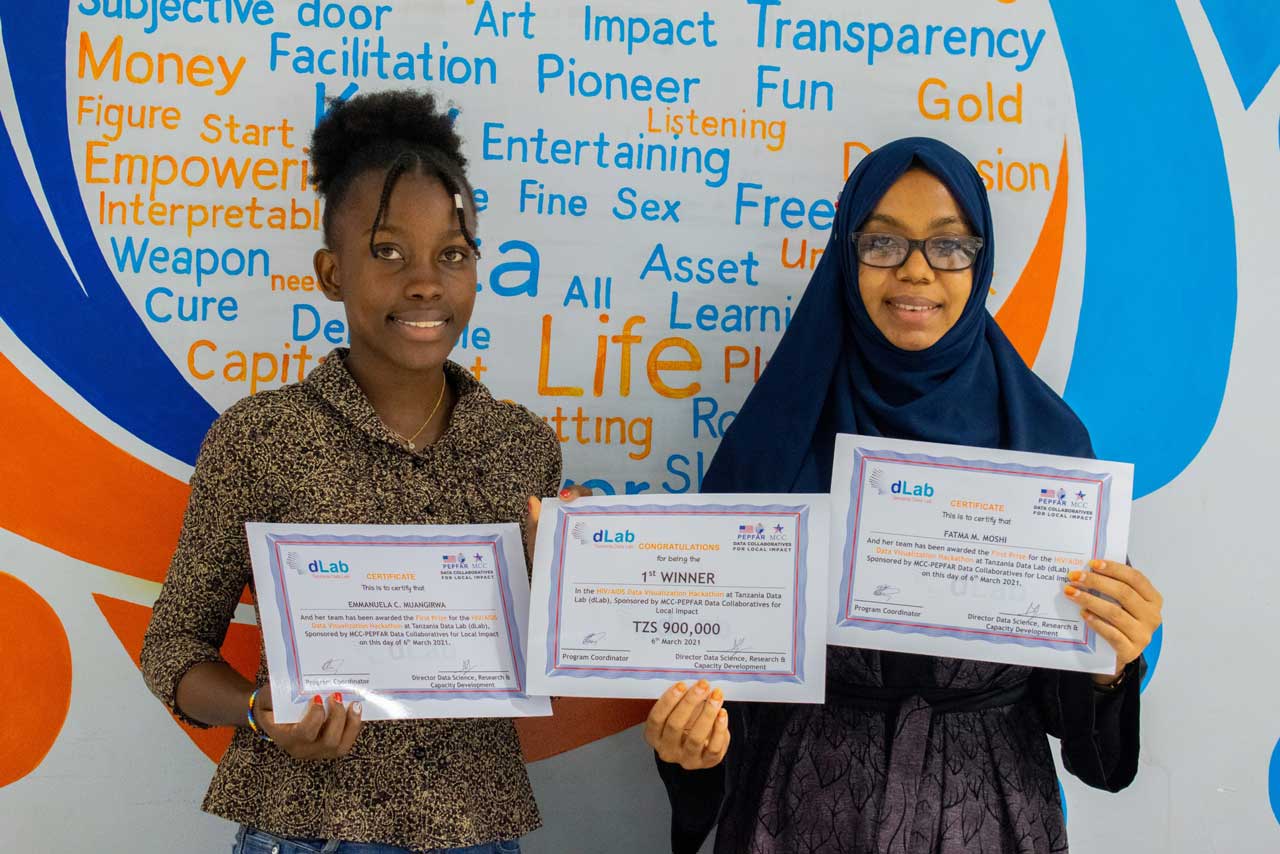
Improving HIV/AIDS services through data: Meet the winners of dLab’s Data Visualization Hackathon
On Open Data Day (March 6), Tanzania Data Lab (dLab) organized a Data Visualization Hackathon to demonstrate the power of data in bringing insights to life and informing on issues related to HIV/AIDS. At the event, 26 hackers working in teams assessed and analyzed data related to HIV/AIDS from PEPFAR countries in Africa. Insights on mother-to-child transmission, key vulnerable population, discrimination and general HIV/AIDS trends were generated. The goal was to generate visualizations that will inform on how to improve HIV/AIDS service delivery and decision-making.
At the end of the event, a jury awarded three prizes: one for the overall winner (TSh 900,000), one for the first runner up (TSh 600,000), and a third prize for the best female team (TSh 300,000). The winning team was of a data scientist from Stanbic Bank and a student from Ardhi University (taking BSc. Geographical Information Systems and Remote Sensing), both women — Fatma Moshi and Emmanuela Muangirwa. The duo won the overall prize and the “best female team” prize. “I am glad I participated. As a student, I have gained a lot of skills in data visualization. I urge the organizers to continue creating spaces where we can use creativity and data to create discussions and solutions on various social problems,” Emmanuela said at the event.
Observing the PEPFAR countries in Africa, Fatma and Emmanuela analyzed data that explored whether or not newborns whose mothers are HIV positive are taken for testing after their delivery. They looked at yearly trends per country and the relation between infants and pregnant women with HIV/AIDS. Using Jupyter notebook and PowerBI, they analyzed datasets on “Early Infant Diagnosis for HIV, 2010-2019” and “Coverage of prevention of mother-to-child transmission (PMTCT), 2010-2019”.
What they found was that most pregnant women take their children for testing after giving birth. However, there has been a number of women in recent years who don’t. And a very small number of women living with HIV/Aids who do not use ARVs themselves, but still take their newborns for testing.
“It’s possible that the women who choose not to take their newborns for testing have observed that in the past other mothers living with HIV/AIDS delivered children who were not infected. Perhaps there is an assumption that this is the norm and so, why bother testing. And for those who don’t take ARVs themselves but still take their children for testing, it might be that they are afraid that their children are infected because they were not taking any treatment while pregnant,” Fatma explained. She added that due to time constraints, they couldn’t dig deep to see what was really happening on the ground and why was the trend happening at the same time in various countries. However, she acknowledged that there is still a need to raise awareness among pregnant women with HIV/AIDS on testing their newborn.